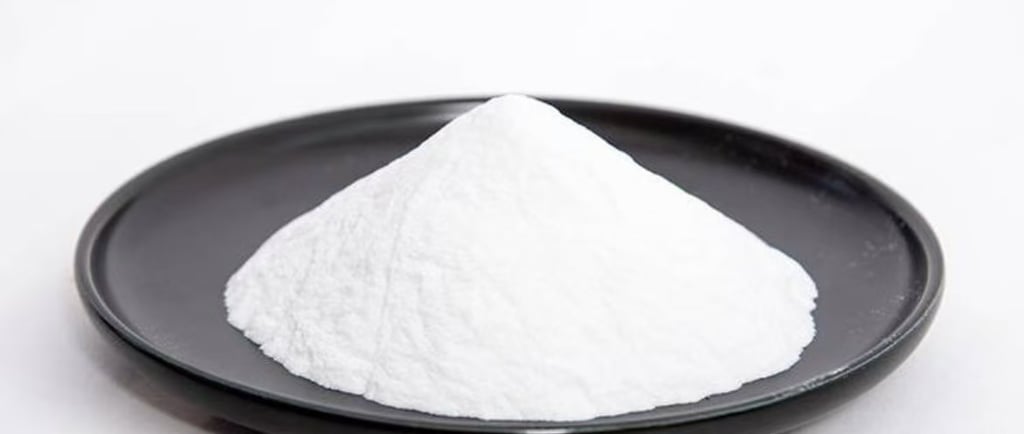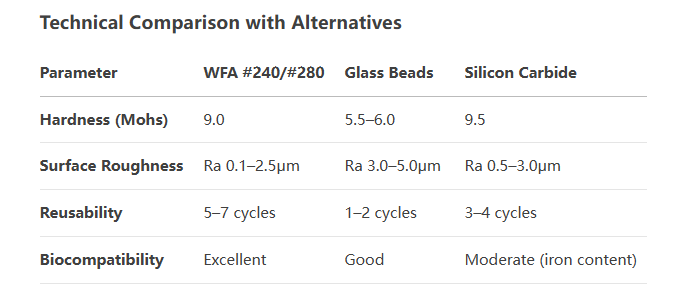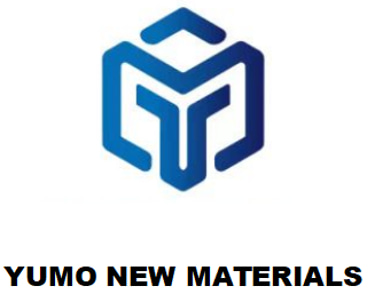HENAN YUMO: Engineered Precision, Uncompromised Performance
The Role of #240 and #280 White Fused Alumina Micro Powder in Dental Prosthesis Sandblasting
Enhancing Precision and Durability in Dental Restoration
5/21/20252 min read


Introduction
White fused alumina (WFA) micro powder, particularly grades #240 and #280, has become indispensable in dental prosthesis sandblasting due to its exceptional purity, hardness, and biocompatibility. This blog explores how these ultrafine abrasives revolutionize dental workflows, ensuring superior surface preparation for crowns, bridges, and dentures while adhering to stringent medical standards.
Key Properties of #240 and #280 WFA Micro Powder
High Purity:
Al₂O₃ ≥99.5%, with Fe₂O₃ ≤0.03% and SiO₂ ≤0.1%, minimizing contamination risks511.
Low sodium content (Na₂O ≤0.25%) ensures compatibility with biocompatible materials11.
Controlled Particle Size:
#240 (D50 ≈53μm) and #280 (D50 ≈42μm) provide balanced aggression and precision510.
Narrow particle distribution reduces uneven surface texture, critical for dental adhesives7.
Physical Performance:
Mohs Hardness 9.0 ensures efficient removal of oxides and contaminants without damaging delicate prostheses711.
Angular grain morphology enhances cutting efficiency, achieving Ra ≤0.1μm surface finishes7.
Applications in Dental Prosthesis Sandblasting
1. Surface Cleaning and Preparation
Removal of Oxide Layers and Residues:
WFA micro powder effectively eliminates casting oxides, release agents, and organic residues from cobalt-chrome or titanium frameworks, ensuring optimal bonding surfaces for porcelain layering511.Adhesion Enhancement:
By creating micro-roughness (Ra 1.5–2.5μm), #240 and #280 grits improve the adhesion strength of dental cements and coatings by 30–40% compared to traditional methods710.
2. Biocompatibility and Safety
Iron-Free Composition:
Unlike brown fused alumina, WFA contains negligible iron (Fe₂O₃ ≤0.03%), eliminating risks of discoloration or allergic reactions in patients511.Non-Toxic and Sterilizable:
Suitable for medical-grade applications, WFA micro powder withstands autoclave sterilization (up to 1900°C) without degradation10.
3. Efficiency in Complex Geometries
Precision in Fine Details:
The ultrafine particles penetrate intricate prosthesis designs (e.g., undercuts, mesh structures) without causing edge rounding, preserving structural integrity7.Reduced Processing Time:
Dental labs report a 20–25% reduction in sandblasting time compared to glass beads or silicon carbide11.
Best Practices for Dental Sandblasting
Equipment Setup:
Use 0.4–0.6 MPa pressure and a 60–70° nozzle angle to balance efficiency and surface integrity7.
Opt for closed-loop systems to recycle abrasives and reduce waste10.
Grit Selection Guidelines:
#240: Ideal for initial oxide removal on metal frameworks.
#280: Perfect for final surface texturing before bonding11.
Post-Blasting Cleaning:
Ultrasonic cleaning with deionized water ensures no residual particles, critical for biocompatibility5.
Case Study: Enhancing Denture Longevity
A dental lab switched from silicon carbide to #280 WFA micro powder for cobalt-chrome partial dentures:
Results:
40% reduction in adhesive failures over 12 months.
Surface roughness optimized to Ra 1.8μm, improving porcelain bond strength by 25%711.
Why Choose Our WFA Micro Powder?
Medical-Grade Certification: Compliant with ISO 13485 for dental applications.
Custom Grading: Tailored grit distributions (D90/D50 control) for specific prosthesis needs.
Free Samples: Test our #240 and #280 WFA in your lab – Request Now.


